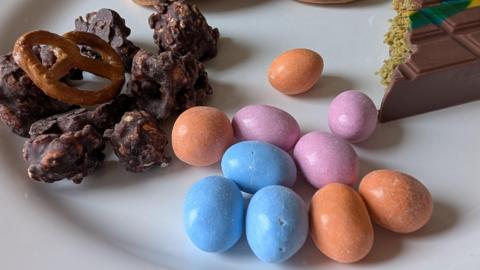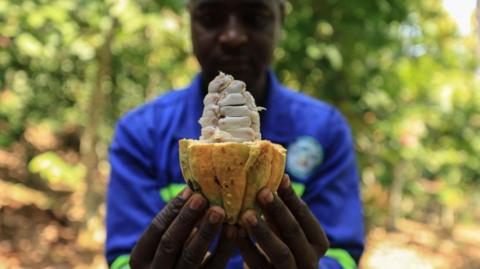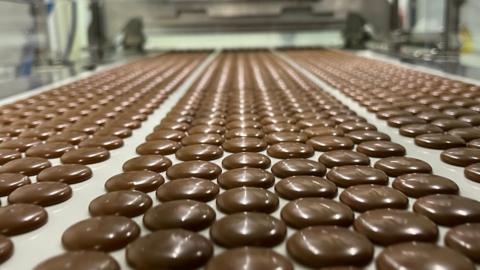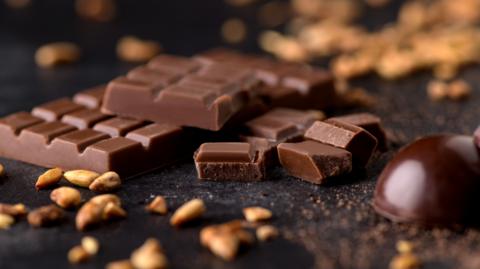The first thing I notice is the lack of a strong aroma. There's no familiar, powerful waft of cocoa when opening this bag of sweets, the packet of biscuits, or the caramel-filled truffles.
And as I taste each one as part of my solemn commitment to inform the public, I don't get quite the same burst of chocolate flavour that you might expect from treats with that familiar, waxy, light brown chocolate-like coating. The thing is, this isn't chocolate. It's made with sunflower seeds. Or fava (also called broad) beans.
The selection before me is just a smattering of the non-cocoa containing alternatives to chocolate that are creeping into the European retail market right now. Their makers have spied an opportunity, partly because real chocolate prices are soaring.
"The average increase in price for chocolate was 9% over 2024," says Richard Caines, principal analyst in UK food and drink research at market research firm Mintel. "In January just gone, it's shot up by 14%."
That's the retail price of chocolate. The wholesale price of the key ingredient, cocoa – which is made from fermented, roasted and ground cacao beans – has increased by an astonishing 300% in 2024.
"I have been looking at this chocolate market for quite a few years now – I don't remember a big story like this on costs going up," adds Mr Caines.
A key reason for this increase is climate change-related weather impacts on cacao farms, particularly in West Africa.
Plus, some farmers in Ghana are turning away from cacao production in favour of illegal gold-mining, according to reports.
It means that there was a deficit of roughly 500,000 tonnes of cocoa in the global market last year.



